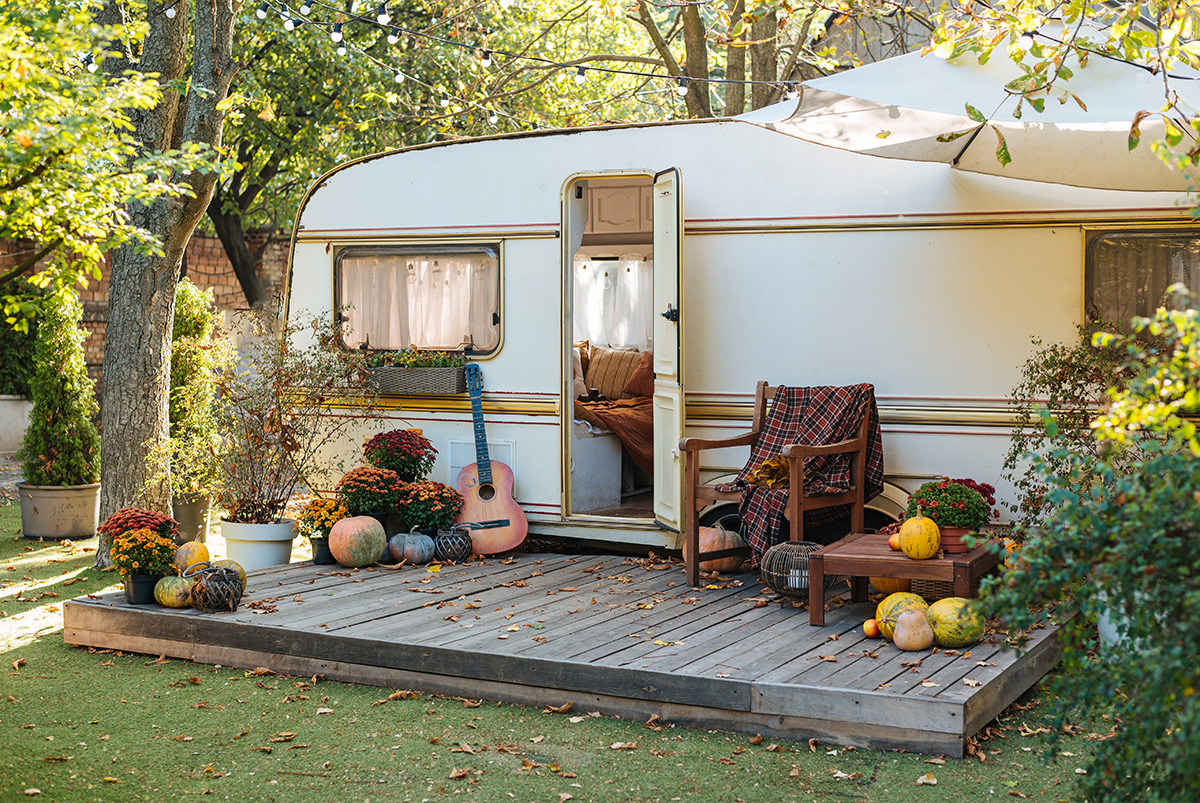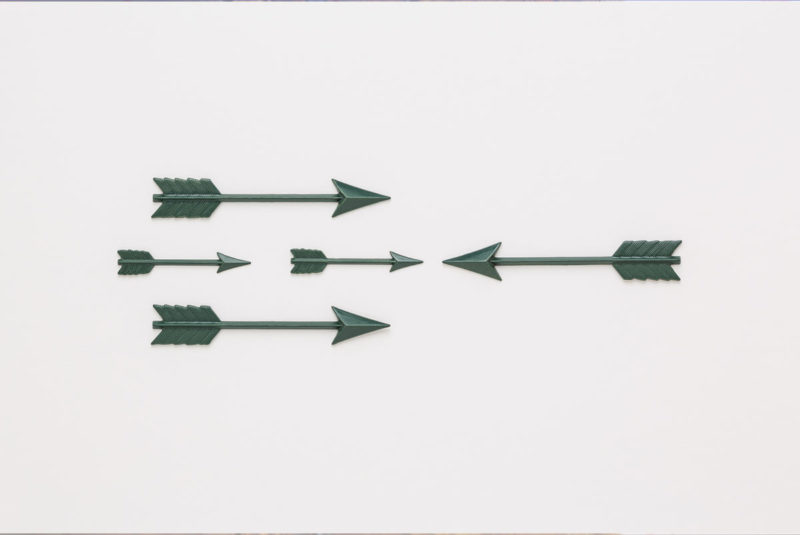Ready To Buy a Home?
Get Approved to Buy a Home
Rocket Mortgage® lets you get to house hunting sooner.
Regardless of what interest rates are doing, there are always prospective home buyers interested in the idea of alternative housing, like manufactured homes, often referred to as “mobile” homes.
However, if you’re interested in a home that isn’t set on a permanent foundation, you will likely need to seek alternative financing to a traditional mortgage). Chattel mortgages are loans you get on personal property (aka chattel) that can move.
If you suspect chattel mortgages are different from conventional mortgages, you would be right. We’ve rounded up the details you’ll need to understand the loan, how it works and when to use one.
What Chattel Loans Are Used For
While 42% of chattel mortgages buy manufactured homes[1] you can use them to finance the purchase of modular homes, vehicles, and heavy machinery such as farm and construction equipment.
The term “mobile home” is pretty obsolete. The Department of Housing and Urban Development (HUD) defines it as a manufactured home built before June 15, 1976.[2]Usually, when used nowadays, people are technically referring to manufactured homes.
If you’re trying to finance a home purchase, the key question to ask yourself is: can the property move? If it can, you’ll probably need to seek alternative financing like a chattel mortgage. If it’s fixed to a permanent foundation, you’ll have more traditional mortgage options available to choose from.
Need Mortgage Help?
New home, second home, refinancing, we’ve seen it all. Whatever your goals, expert help is just a click away.
How Chattel Mortgages Work
At first blush, a chattel mortgage may look like any other mortgage. A chattel mortgage is a secured loan that requires underwriting. The borrower receives a lump-sum payment they repay with interest over a predetermined loan term. Pretty standard, right?
But chattel mortgages have some differences you should know about, including that the loans don’t finance the cost of land.
What’s the difference between a chattel mortgage and a traditional mortgage?
Chattel and traditional mortgages share a fundamental similarity: You can use both to finance the purchase of a home. But their similarities end there.
- Property requirements: A traditional home loan finances fixed, stationary homes. A chattel mortgage finances movable property, like manufactured homes.
- Financing land: Unlike a traditional mortgage, you can’t use a chattel mortgage to buy land. If you want to own land, you’ll need to lease or buy the land separately.
- Collateral: Traditional mortgages and chattel mortgages are secured by collateral. The collateral for a traditional mortgage is the land and the structure(s) on it. The collateral for a chattel mortgage is personal property, like a manufactured home or construction equipment.
- Repayment period: The typical repayment period for a traditional mortgage is 30 years. The repayment length for chattel mortgages is rarely ever more than 20 years.
- Interest rates: Chattel mortgages usually come with higher interest rates than other types of mortgages.[1]
Pros and Cons of Chattel Mortgages
Before taking out a chattel mortgage, consider the pros and cons.
PROS of chattel mortgages👍
Chattel mortgages usually have shorter terms than traditional mortgages, so you’ll pay off your loan sooner.
Chattel mortgages can finance other purchases, including heavy equipment and cars.
You can claim tax deductions on mortgage interest and property taxes.[3]
You may qualify for a chattel mortgage even if your credit and income wouldn’t qualify you for a traditional mortgage. Chattel mortgage lenders usually require a minimum credit score of 575 (more or less). That’s considerably lower than the 620 minimum for conventional mortgages.[4]
CONS of chattel mortgages👎
Chattel mortgages usually have higher interest rates than traditional mortgages.
Lenders that offer traditional mortgages aren’t hard to come by. And there are a wide variety of options. Chattel mortgages aren’t offered by many lenders, so borrowers have fewer options.
Remember, a chattel loan is a secured loan. The movable personal property you’re financing will serve as the loan’s collateral. Like a traditional loan, if you default on your chattel mortgage your lender can repossess the property you bought with the loan.
Where To Find Chattel Mortgages
Chattel mortgages aren’t as common as typical mortgage options, but you can still find chattel mortgage lenders. Check out:
- Chattel mortgage lenders’ websites
- Online and brick-and-mortar banks
- Manufactured home dealers
That said, if you’re having difficulty finding a reputable lender willing to offer chattel mortgages, try not to stress. There are plenty of alternative loan options available.
Government alternatives to chattel mortgages
You’re not limited to chattel mortgages to buy manufactured, mobile, or other prefab homes. You can also look into federal programs to see what government-backed loans are available.
While the federal government backs these loans, a lender will process, approve and issue the mortgage.
- U.S. Department of Agriculture (USDA): The USDA’s Single Family Housing Guaranteed Loan Program can help you finance manufactured homes. The loan has strict eligibility requirements. The manufactured home must be brand-new, at least 400 square feet and fixed to a permanent foundation.(5)
- Department of Veterans Affairs (VA): A VA loan allows qualifying service members, veterans, and surviving spouses to buy manufactured or modular homes. To qualify, the property must have at least 400 square feet of interior living space and be fixed to a permanent foundation.(6)(7)
- Department of Housing and Urban Development (HUD): The HUD Title 1 program allows FHA-approved lenders to offer mortgages for manufactured homes. Manufactured homes have a loan limit of $69,678 ($92,904 for a manufactured home and lot). The home must be a primary residence, and borrowers must provide proof of income and proof of funds.(8)
Home is worth it.
The mortgage process can be exciting, and we’ll be with you all the way. Take the first step to owning a home. You’ll be glad you did.
Chattel Mortgage FAQs
How much of a down payment do you need for a chattel loan?
The minimum down payment required for a chattel loan is typically 5% of the purchase price.
What happens when you default on a chattel mortgage?
If you default on your chattel mortgage, your lender has the right to repossess the property that secured the loan.
Should I choose a chattel mortgage or a regular mortgage?
Chattel mortgages and regular mortgages each have their sets of pros and cons. Chattel mortgages are a great option if you want to buy movable property (think: mobile homes, prefab homes, etc.) and you have low or bad credit.
A traditional home loan is for a stationary home. Conventional mortgages usually have lower interest rates than chattel mortgages, offer a wider variety of loan types, and have longer repayment periods and higher borrowing limits. But they also have stricter property and credit requirements.
Final Thoughts on Chattel Mortgages
If you need to finance the purchase of movable property, you should look into chattel mortgages. They’re not as well known as other mortgage types and have slightly higher interest rates, but they can help you become the proud new owner of property that can move.
The Short Version
- While 42% of chattel mortgages buy manufactured homes,[1] you can use them to finance the purchase of modular homes, vehicles and heavy machinery
- Chattel mortgages aren’t as common as traditional mortgages, but you can still find chattel mortgage lenders
- If you take out a chattel mortgage, you’ll usually pay a higher interest rate and have less consumer protection than other more traditional mortgages[1]
Consumer Financial Protection Bureau. “Manufactured Housing Loan Borrowers Face Higher Interest Rates, Risks, and Barriers to Credit, New CFPB Report Finds.” Retrieved September 2023 from https://www.consumerfinance.gov/about-us/newsroom/manufactured-housing-loan-borrowers-face-higher-interest-rates-risks-and-barriers-to-credit/
U.S. Department of Housing and Urban Development. “Manufactured Housing and Standards – Frequently Asked Questions.” Retrieved September 2023 from https://www.hud.gov/program_offices/housing/rmra/mhs/faqs
Internal Revenue Service. “Publication 530 (2021), Tax Information for Homeowners.” Retrieved September 2023 from https://www.irs.gov/publications/p530
- Fannie Mae. “Selling Guide.” Retrieved September 2023 from https://selling-guide.fanniemae.com/Selling-Guide/Origination-thru-Closing/Subpart-B3-Underwriting-Borrowers/Chapter-B3-5-Credit-Assessment/Section-B3-5-1-Credit-Scores/1032996841/B3-5-1-01-General-Requirements-for-Credit-Scores-08-05-2020.htm
Code of Federal Regulations. “Part 3555 – Guaranteed Rural Housing Program.” Retrieved September 2023 from https://www.ecfr.gov/current/title-7/subtitle-B/chapter-XXXV/part-3555
U.S. Department of Veterans Affairs. “Chapter 12 Minimum Property Requirements.” Retrieved September 2023 from https://www.benefits.va.gov/WARMS/docs/admin26/m26-07/Ch12_Minimum_Property_Requirement_NEW.pdf
- U.S. Department of Veterans Affairs. “Chapter 7. Loans Requiring Special Underwriting, Guaranty and Other Considerations.” Retrieved September 2023 from https://www.benefits.va.gov/WARMS/docs/admin26/handbook/ChapterLendersHanbookChapter7.pdf
U.S. Department of Housing and Urban Development. “Financing Manufactured (Mobile) Homes.” Retrieved September 2023 from https://www.benefits.va.gov/WARMS/docs/admin26/handbook/ChapterLendersHanbookChapter7.pdf




